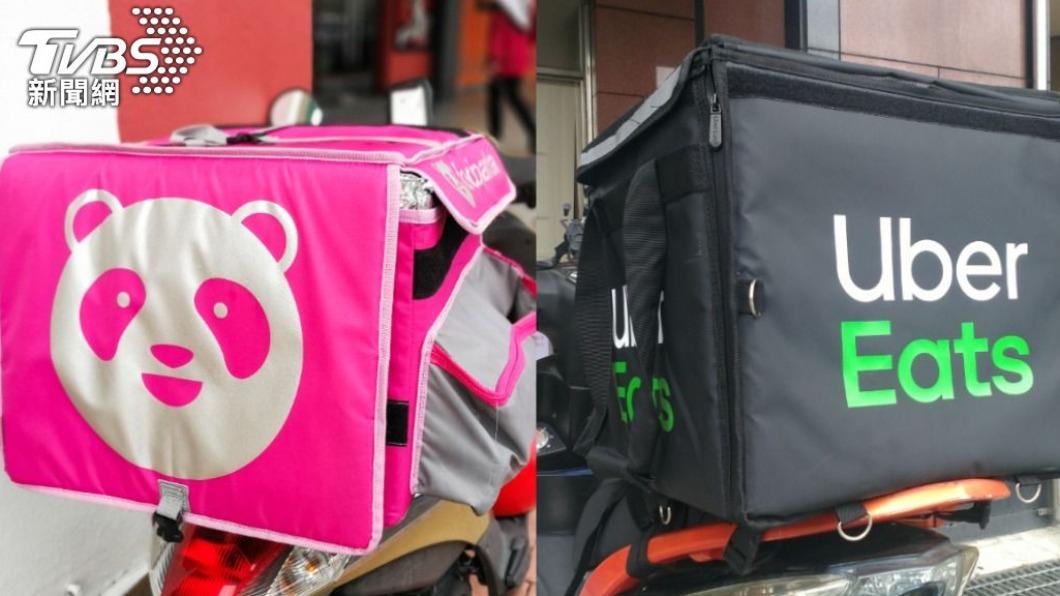TAIPEI (Business Today/TVBS News) — Uber has acquired the leading delivery service, foodpanda, for US$950 million. With regulatory approval, Uber Eats could monopolize Taiwan's delivery market as early as 2025. How will this acquisition impact Taiwan's delivery, dining, and retail industries?
"Uber and Delivery Hero SE have signed an agreement for Uber to acquire its foodpanda delivery business in Taiwan in cash. The transaction is expected to be completed in the first half of 2025." On May 14, the American ride-sharing giant Uber released a press release that dropped a bombshell on Taiwan's delivery market.
"From the early days of delivery services, both companies knew it was a war of attrition; whoever faltered first would have their resources taken over by the other," an insider described the competitive relationship between the two companies.
According to the "Major Delivery Survey" published by the Market Intelligence & Consulting Institute (資策會產業情報研究所, MIC) in 2023, the number of delivery platform users has decreased by about 2.3% compared to 2022, indicating that Taiwan's delivery market has entered a stable and slow period.
Despite foodpanda Taiwan's revenue of 550 million euros (approximately NT$192 billion) last year, an anonymous former foodpanda employee believes that since the performance has not been able to break through the pandemic peak after the lockdown was lifted, coupled with the parent company's consecutive losses and multiple rounds of layoffs in recent years, Delivery Hero was naturally happy to sell this golden goose to Uber for a high price, securing the cash.
In fact, foodpanda and Uber Eats, which entered the Taiwan market in 2012 and 2016, respectively, still have territories and customer groups they have yet to conquer.
"After competing for so long and spending countless resources, no matter how much money they burn, Uber Eats struggles in southern Taiwan, and foodpanda can't capture certain demographics," an e-commerce business owner observed. For Uber's parent company, which achieved profitability for the first time last year and is ambitious, the best strategy is to buy the entire market.
For Uber, acquiring foodpanda will create synergies in managing partner stores and delivery personnel.
"They no longer need to spend double the cost and time on promotions or competing for specific merchants," the e-commerce business owner exemplified. In the past, high-traffic businesses often had to make concessions, such as the two major platforms trying to get McDonald's on board, each time independently offering lower commission fees than the competitor. But in the future, Uber will have greater control.
Effect One: Limited Impact on Major Companies
However, with the two major delivery platforms holding up to 80% market share in Taiwan, there is concern that Uber's dominance will affect partner merchants and delivery personnel once the Fair Trade Commission approves the acquisition. Even PX Mart's (全聯) "PXGo," which cooperates with Uber Eats, could be in the first row of the tsunami.
"The delivery scale depends on how much everyone is willing to pay for the last mile!" On this, the former Vice Chairman of PX Mart, Hsieh Chien-Nan, pointed out the key issue, stating that from a cost-benefit perspective, delivery is a variable cost for stores and does not achieve economies of scale with increased orders. User usage will decrease once delivery fees exceed what consumers or stores can afford. Therefore, even if Uber Eats becomes dominant in the future, it may not directly impact businesses.
"Unless Uber announces a full-scale development of supermarkets, PX Mart doesn't need to worry!" a senior e-commerce manager pointed out. Panda Supermarket ended its business at the end of May, and Uber's fresh grocery platform, UberFresh (優市), has already ceased expansion. PX Mart's fresh products are unmatched in the market for the time being, and it is believed that even if Uber becomes the only partner in the future, it can still maintain its advantages and the current mutually beneficial relationship. "After all, the frequency of ordering fresh products is high, and Uber still relies on it to generate traffic," he said.

Effect Two: Small Stores May Close Due to Struggle to Negotiate
Lin Kang-yu (林剛羽), the founder of Teamwork Consulting Service Firm (天帷企管顧問), which cooperates with 80% of department stores and chain restaurants across Taiwan, pointed out that large groups with financial and brand resources certainly have the ability to negotiate with Uber. However, many small stores, for which delivery accounts for more than 50% of their business, may indeed have to comply with price increases or close down after the pandemic.
Effect Three: New Players May Emerged into the Market
Changing the subject, Lin remarked that when one player dominates the market in any industry, they should tread carefully, or it might force new players into the market. At that time, stores that are charged too high a commission or delivery personnel might switch to a new camp.
However, unlike Uber Eats and foodpanda, which are third-party platforms, Lin believes that if Taiwanese dining and retail businesses want to create their own platforms, the first hurdle is to convince other brands to join. They must also have sufficient capital to withstand initial losses.
Another anonymous delivery platform operator stated bluntly that operating a delivery platform requires managing and matching over a hundred thousand restaurants and channels. If they rely solely on subsidies but fail to provide good service, a one-time influx of traffic could instead ruin the current experience and fail to retain consumers.
An acquisition that could turn foes into family has disrupted Taiwan's delivery market, which had been stable for a long time. Whether Uber Eats ends up dominating or spurring other competitors, it is expected that Taiwan's delivery industry will inevitably face a new situation.










